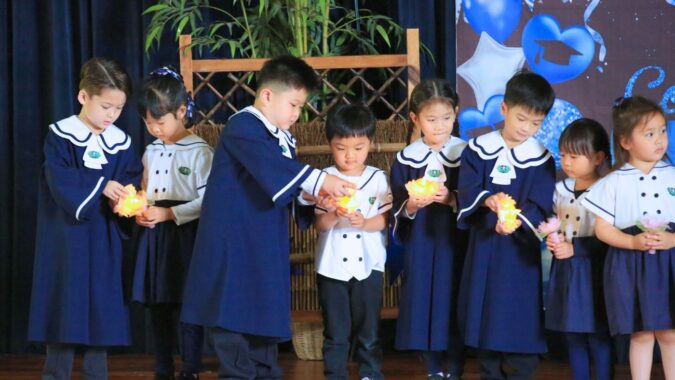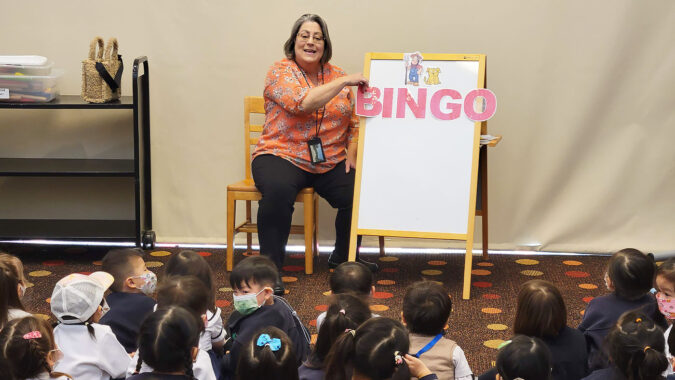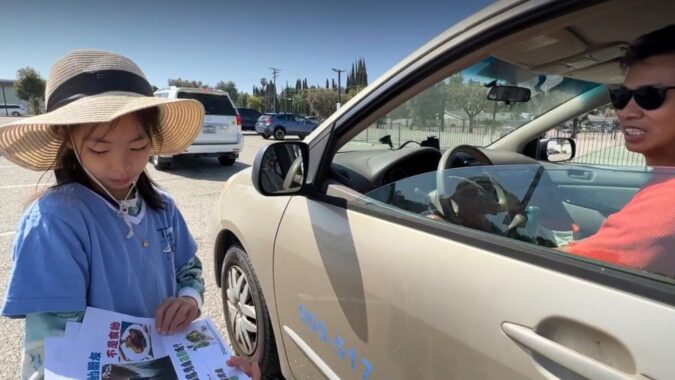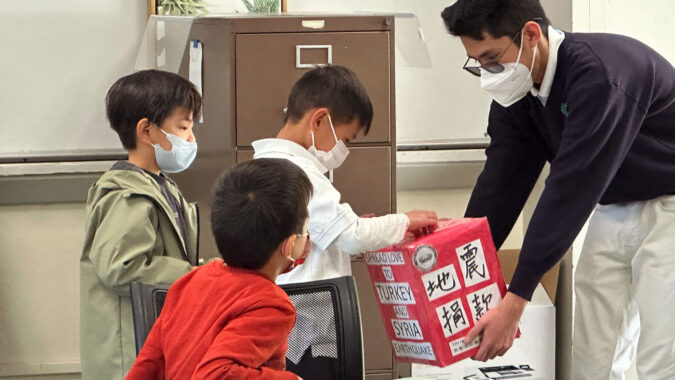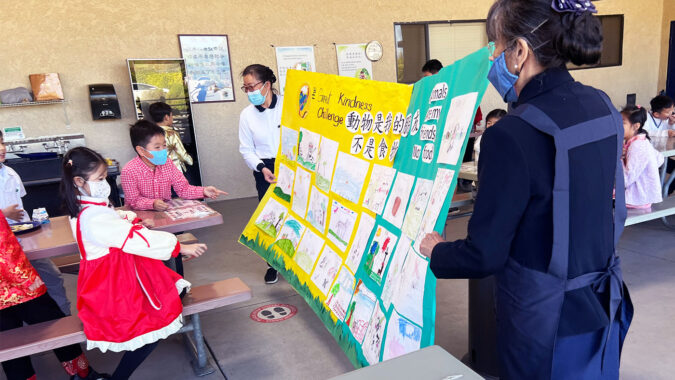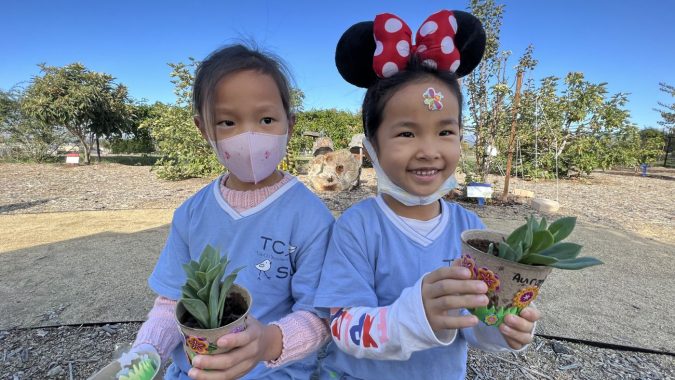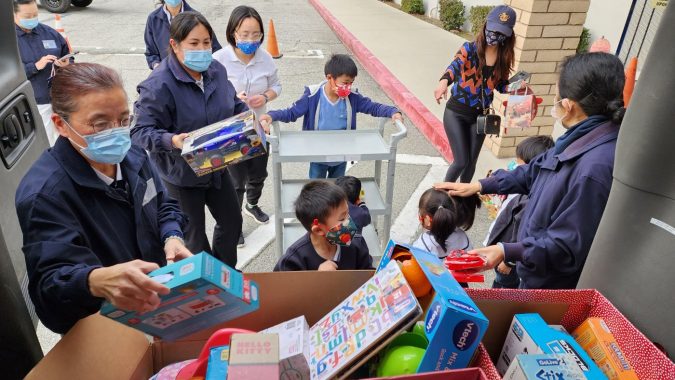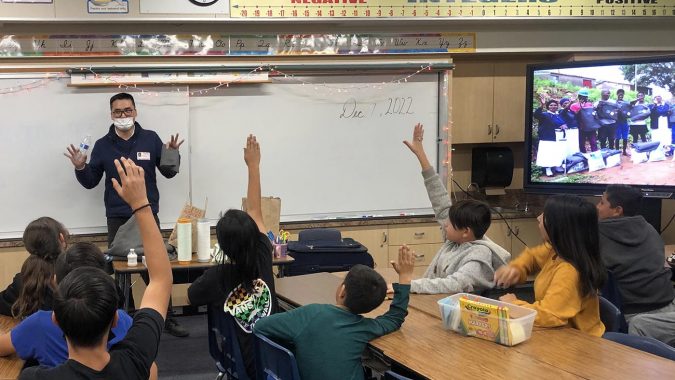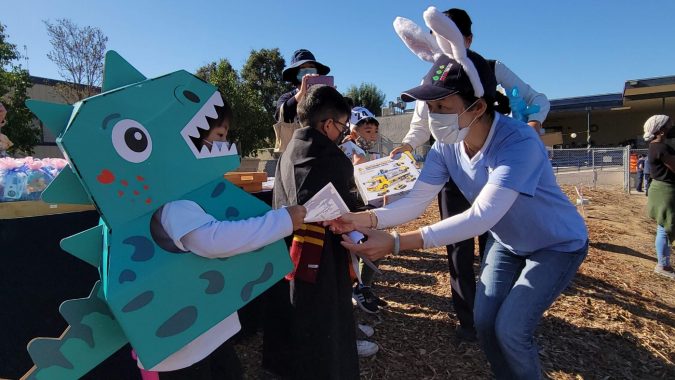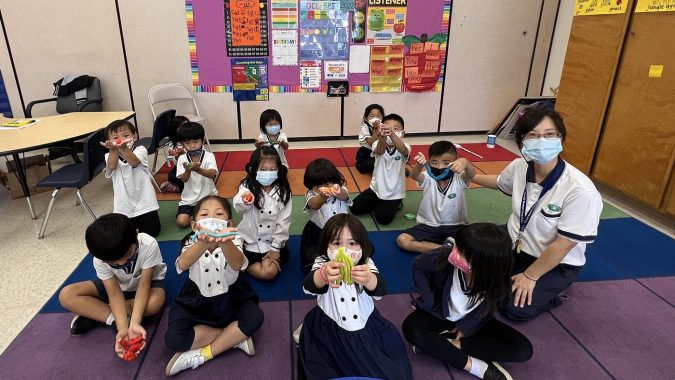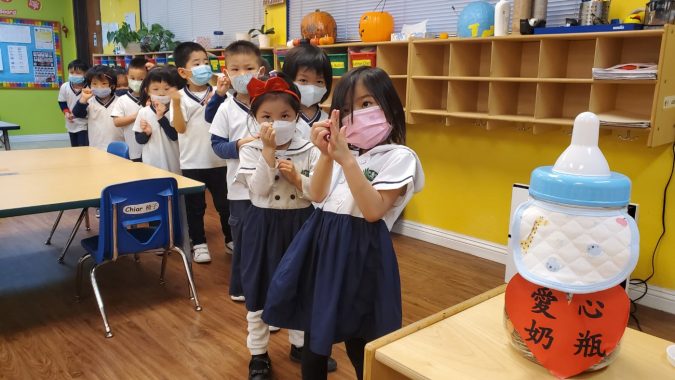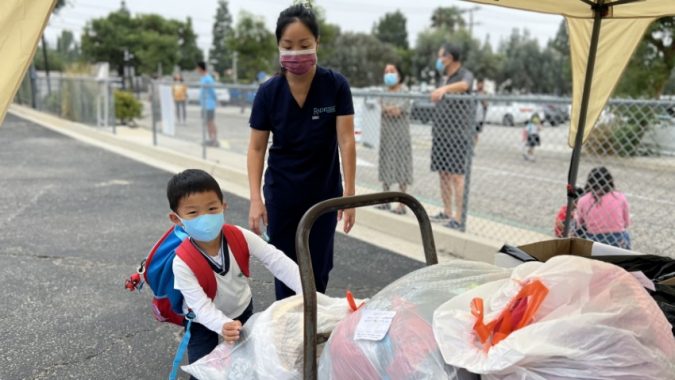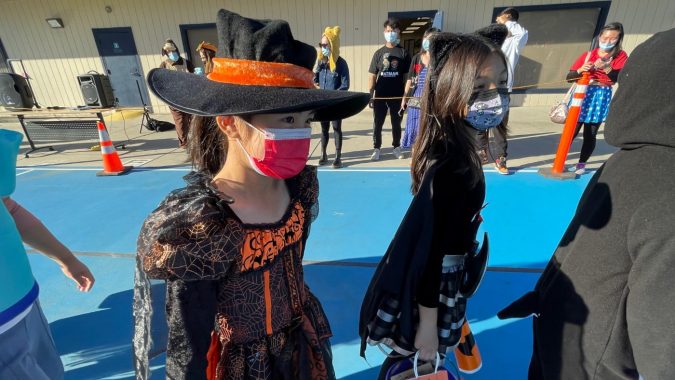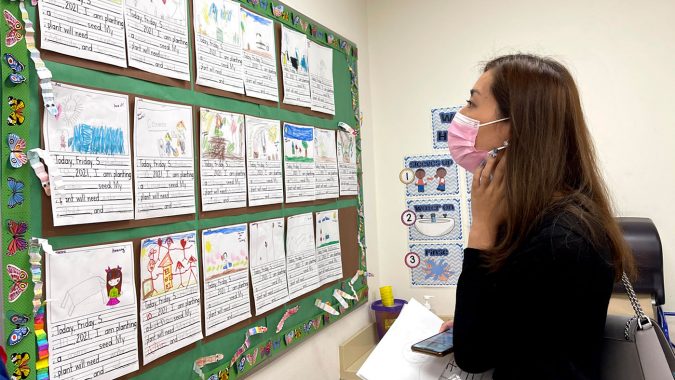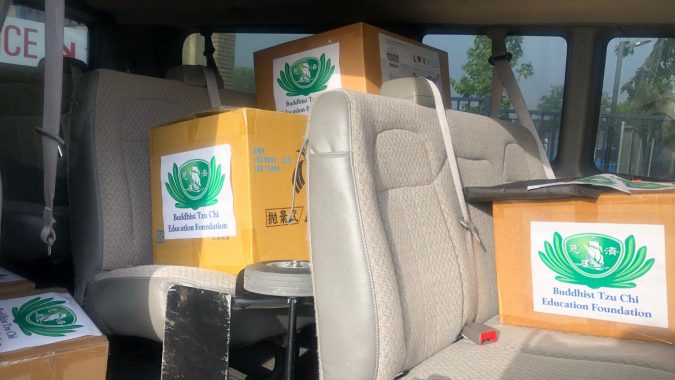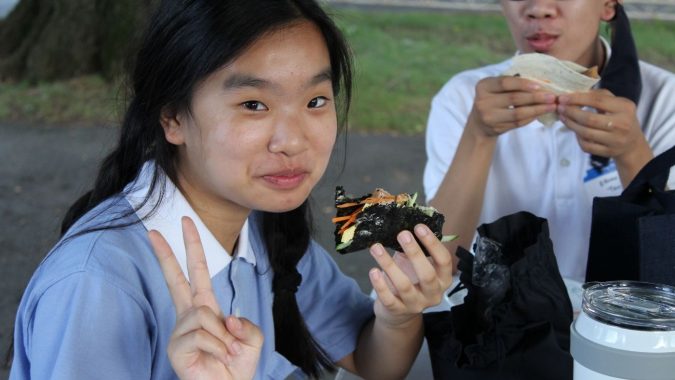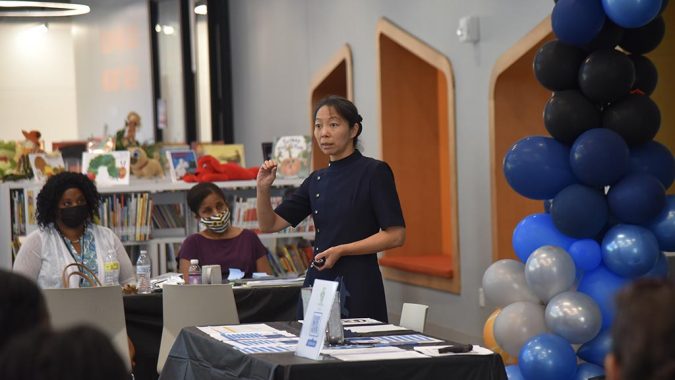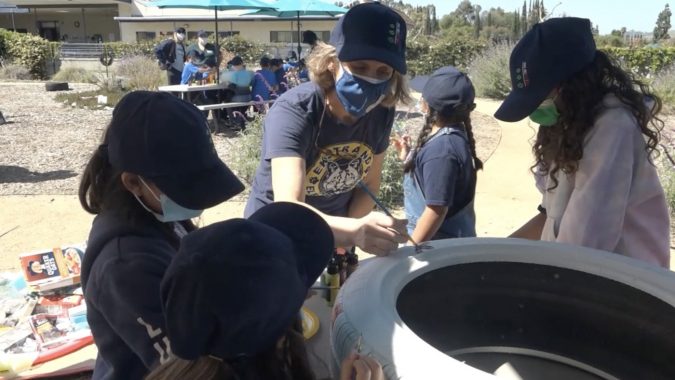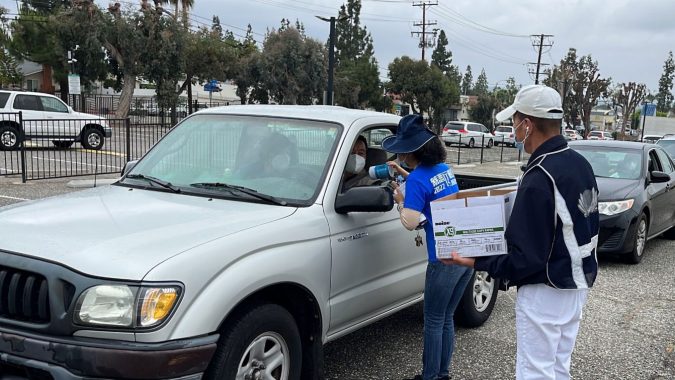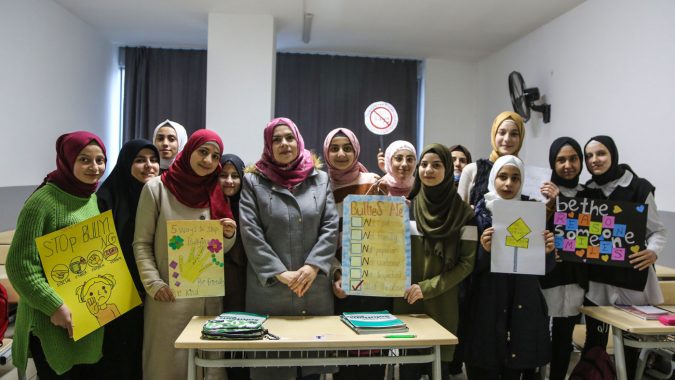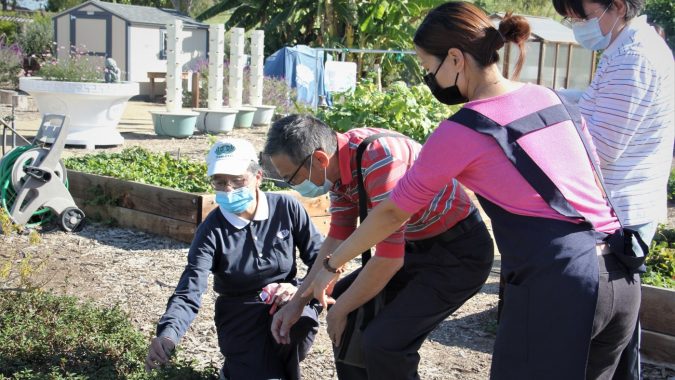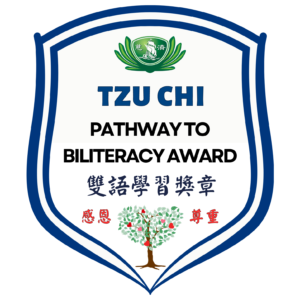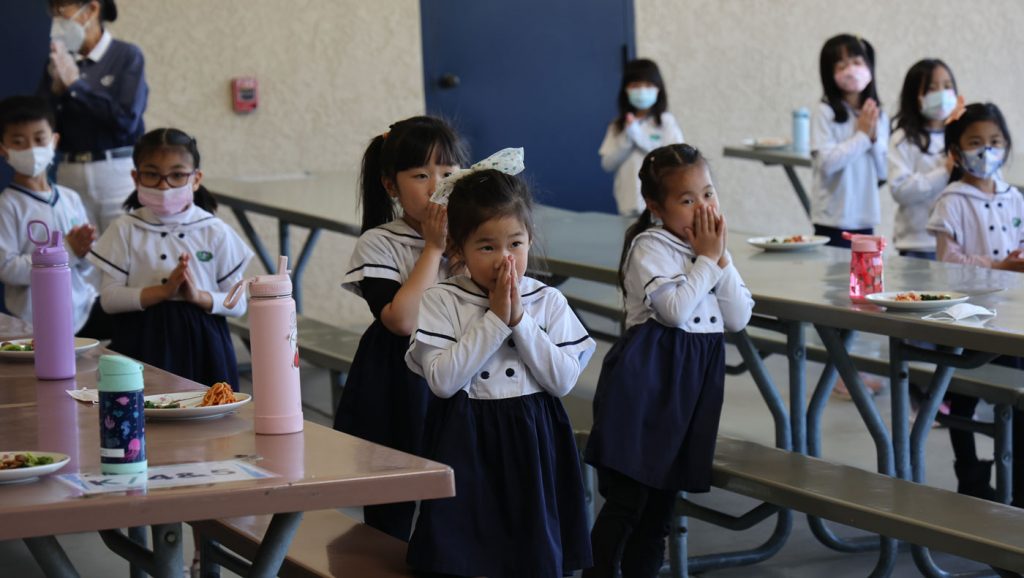
Written by: Shuli Lo, Roger Kao
Translated by: H.B. Qin
Edited by: Maggie Morgan
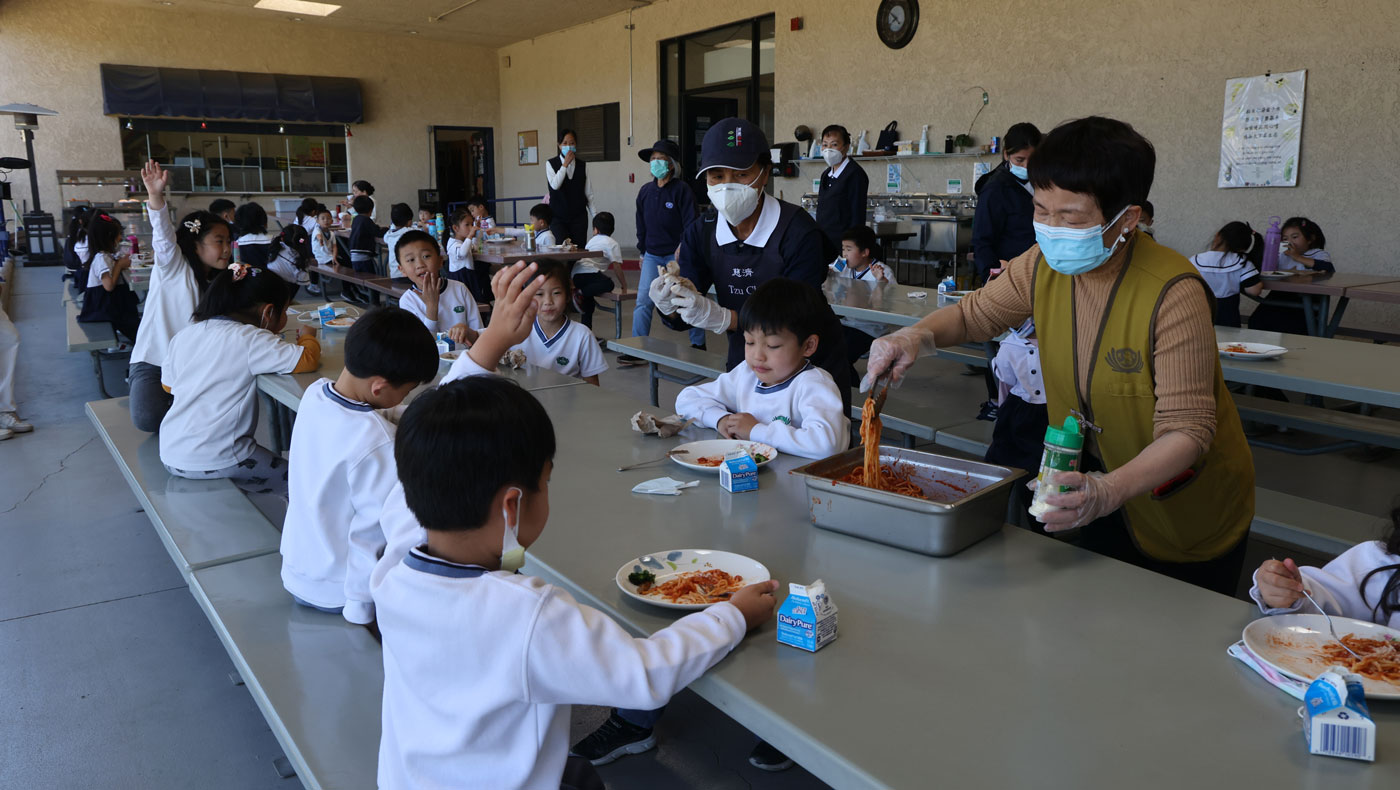
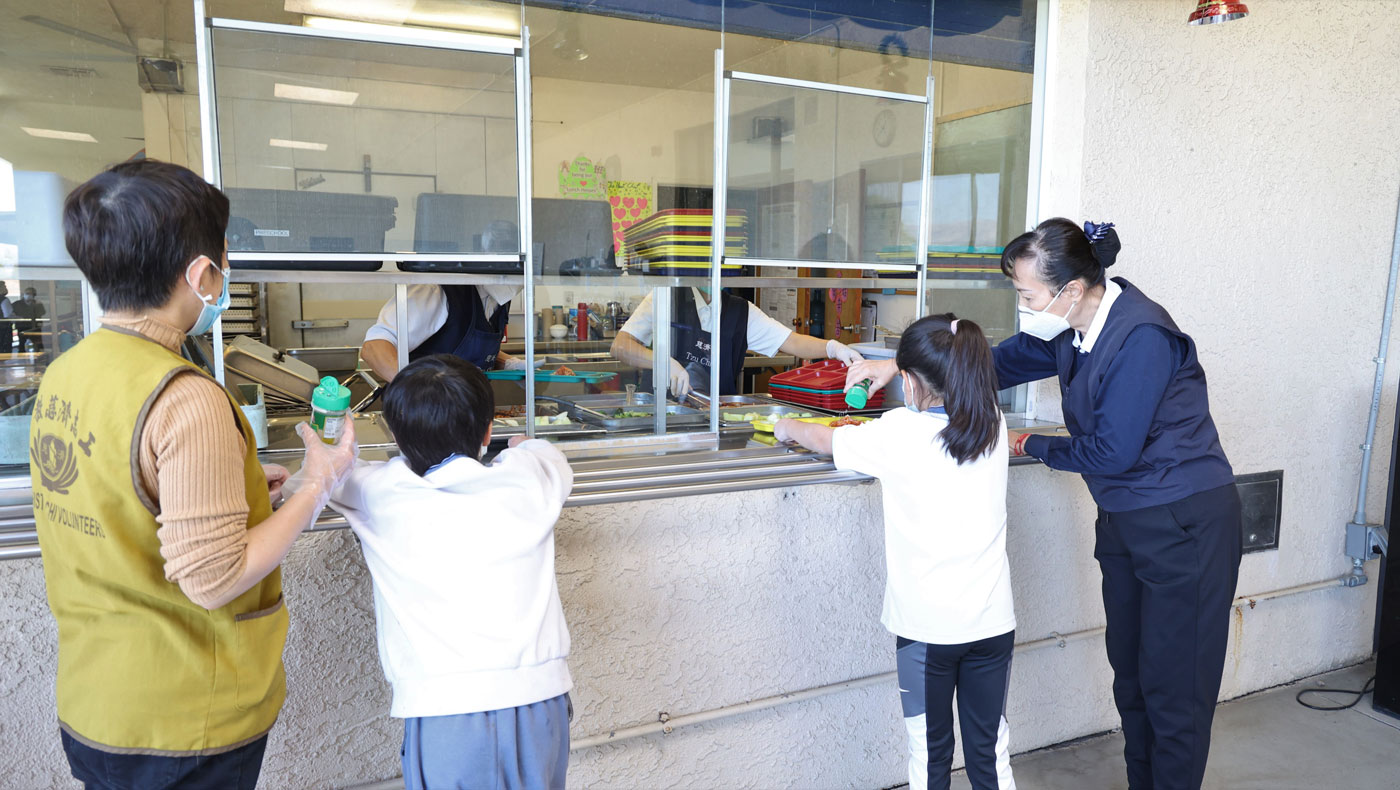
Bright and early on March 4, 2022, Jiwei Sun was already in the kitchen with a lot on his plate. As the Big Cheese, or Head Chef, at Tzu Chi Walnut Education Park, Jiwei was busy planning the menu for the day. The Chef was in and out of the kitchen, preparing a rainbow of fruits, vegetables, and other healthy snacks. Chef Jiwei was clearly a master of his craft as he peeled fresh cantaloupe, cut hearty crowns of broccoli, and diced tomatoes for a homemade pasta sauce
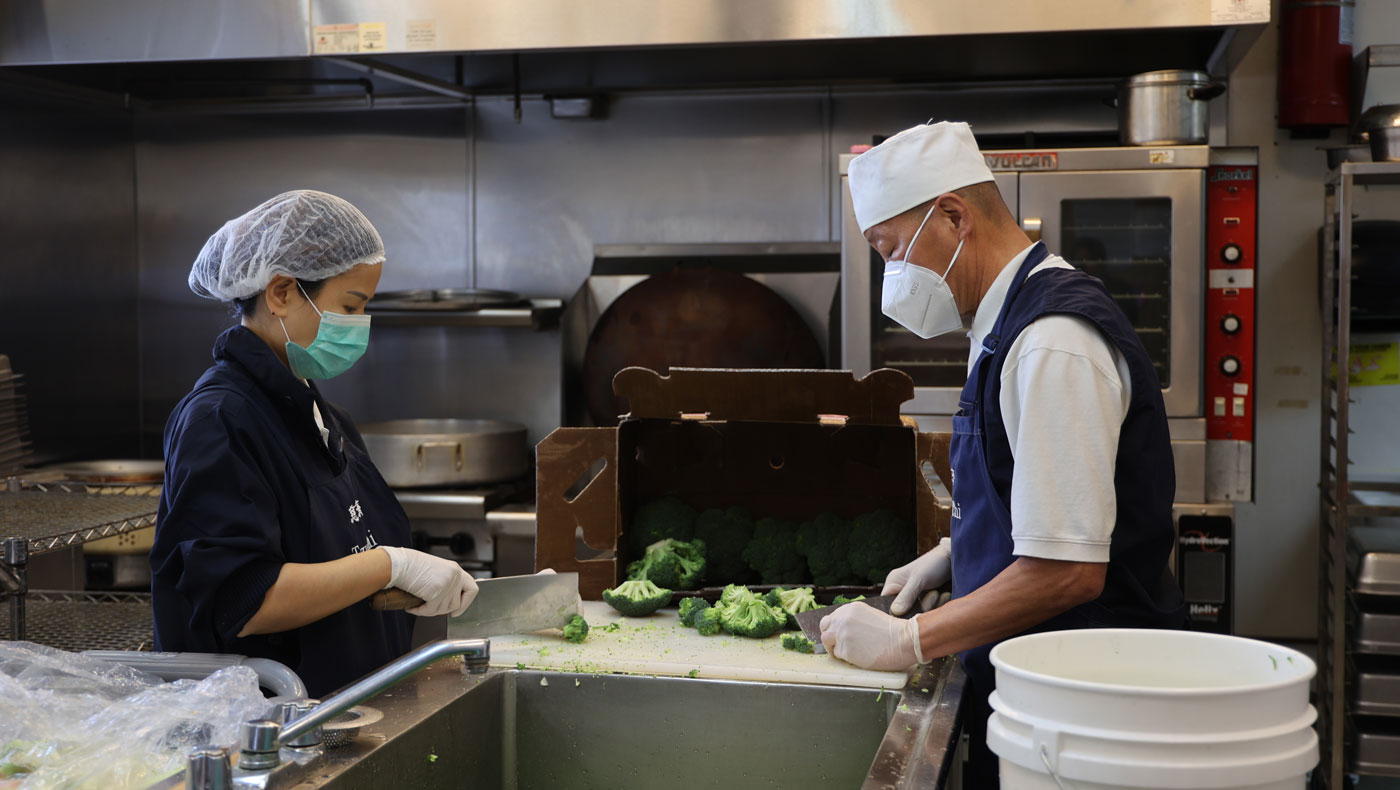
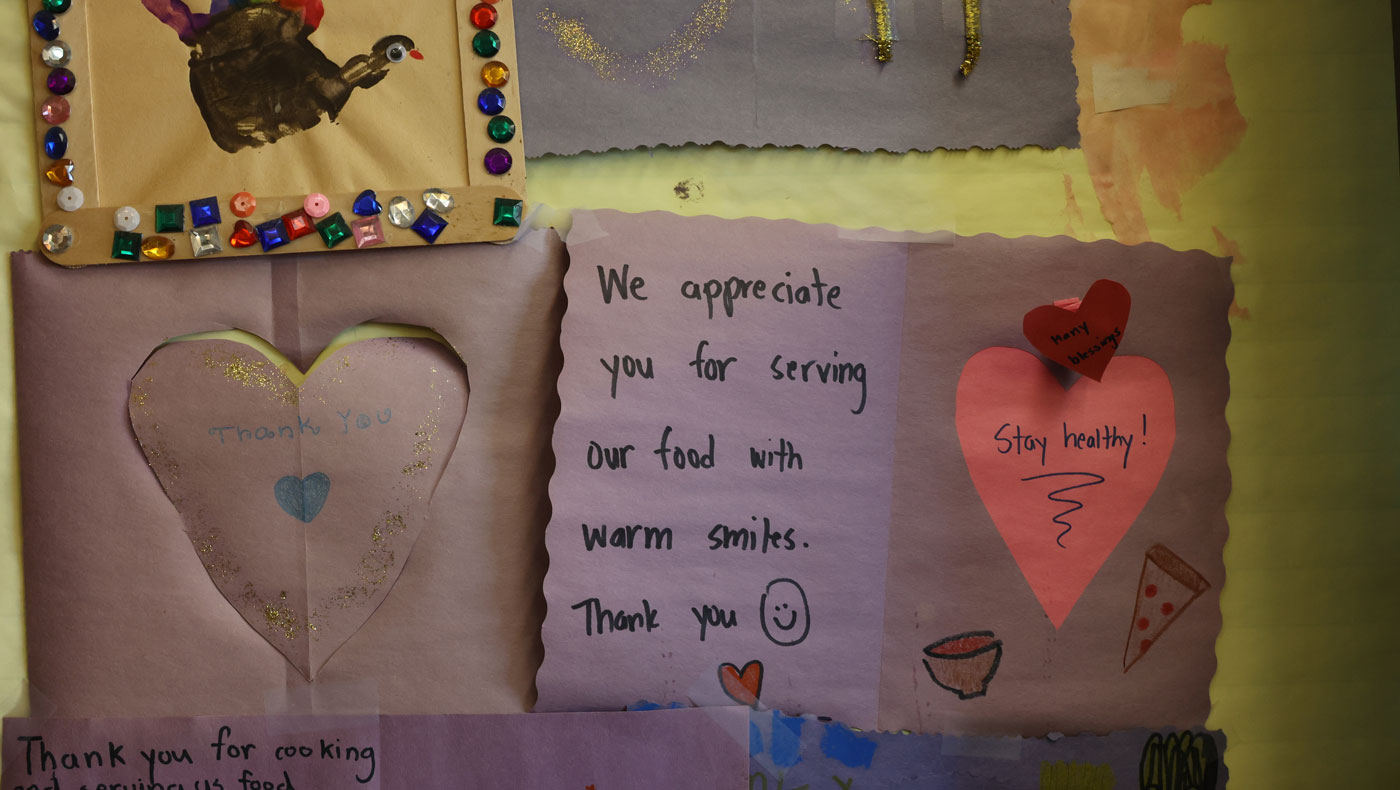
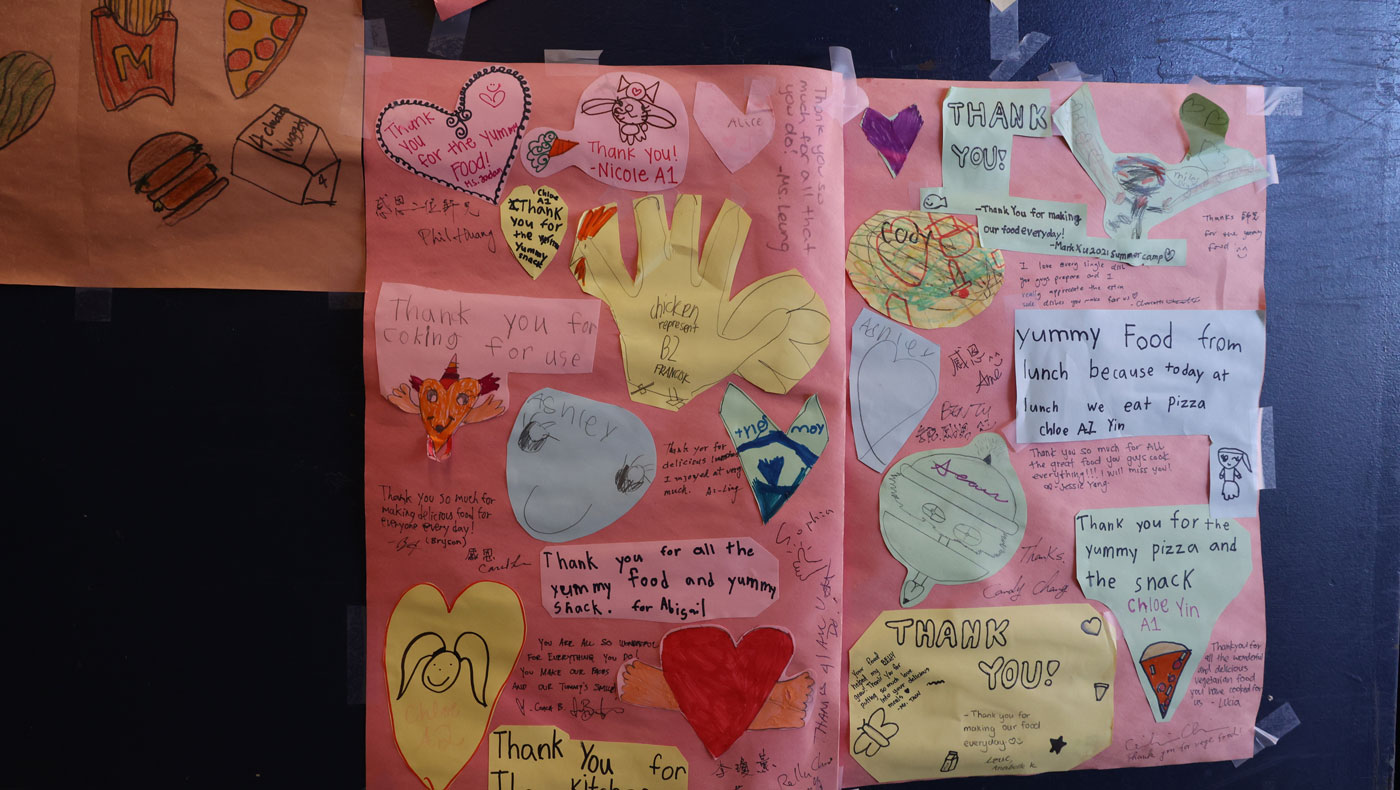
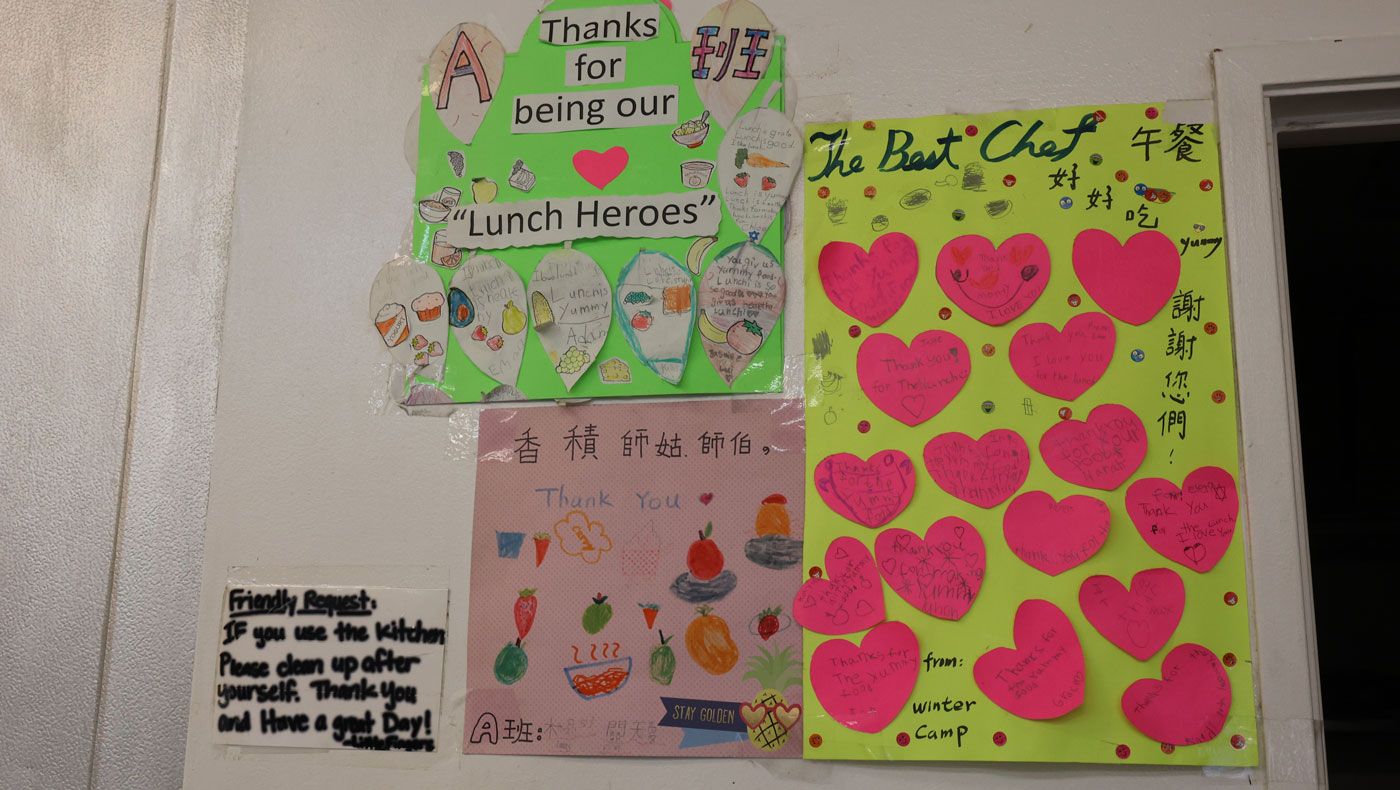
The Culinary Way to Cultivate Compassion

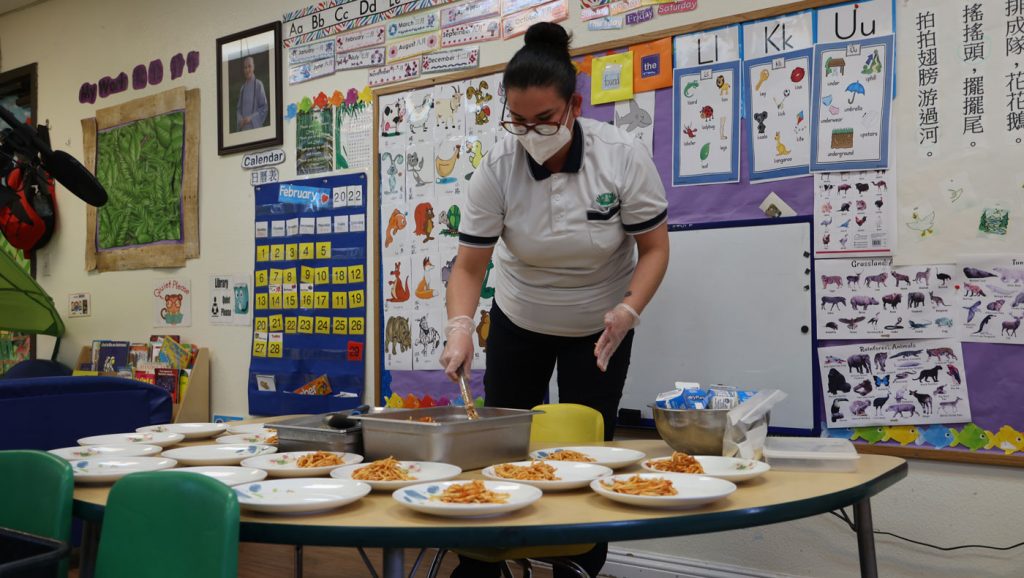
As branches of the Buddhist Tzu Chi Foundation’s ever-growing tree, Tzu Chi Da Ai Preschools and Da Ai Elementary Schools focus on the same Global Footprints as the organization.
The Environmental Protection Footprint is Global Tzu Chi’s promise to protect the Earth, with a particular emphasis on vegetarianism; the principle falls under Tzu Chi’s overall mission to end suffering for all beings.
Tzu Chi also founded The Very Veggie Movement to further focus on spreading awareness of a plant-based lifestyle. The site states the aim is to unite society around the cause of animal rights, environmental protection, and public health.
Living a plant-based lifestyle can deeply change the world, and one’s self, in profound ways. Some of the big-picture benefits of vegetarianism include:
- Saving millions of animals every year
- Reducing the environmental impact of animal farming
- Minimizing the outbreak of the next animal-borne disease
In 2019, the UN’s Intergovernmental Panel on Climate Change published a report that urged people to look at how “the West’s high consumption of meat and dairy produce is fuelling global warming.”
The 107 scientists on the panel helped publish research that was mind-boggling: approximately 58% of greenhouse gas emissions come from animal products, and our food waste comprises 10% of all emissions. Vegetarianism and veganism is not only a spiritual endeavor, there is hard scientific evidence beckoning us to listen.
Tzu Chi’s school curriculum incorporates these vital lessons to the young minds that walk through its doors. Our educators believe it is urgent to promote a vegetarian diet and make the connection to its impacting on protecting the earth. Tzu Chi provides its students with a vegetarian and environmentally-friendly diet through their lunch on weekdays; much more than just food, and this routine will help instill compassion in their hearts for all beings.
A Lunchtime Full of Love
Around 11:30 a.m., after Chef Jiwei and his team, had spent the morning prepping, the kitchen delivered the first batch of lunches. Preschool teachers began to serve healthy, homemade meals to the children. The students washed their hands and started singing the offering song to give gratitude. The teacher explained the nutritional content and health benefits of today’s lunch: the meal can make them physically stronger, increase vision, and a more conscious mind. The children had an increased awareness of what this meal meant and knew it protected the Earth and all of its inhabitants. The cherry (tomato) on top of the pasta? Most students asked for a refill.
Encouraging Mindfulness Through Mealtime
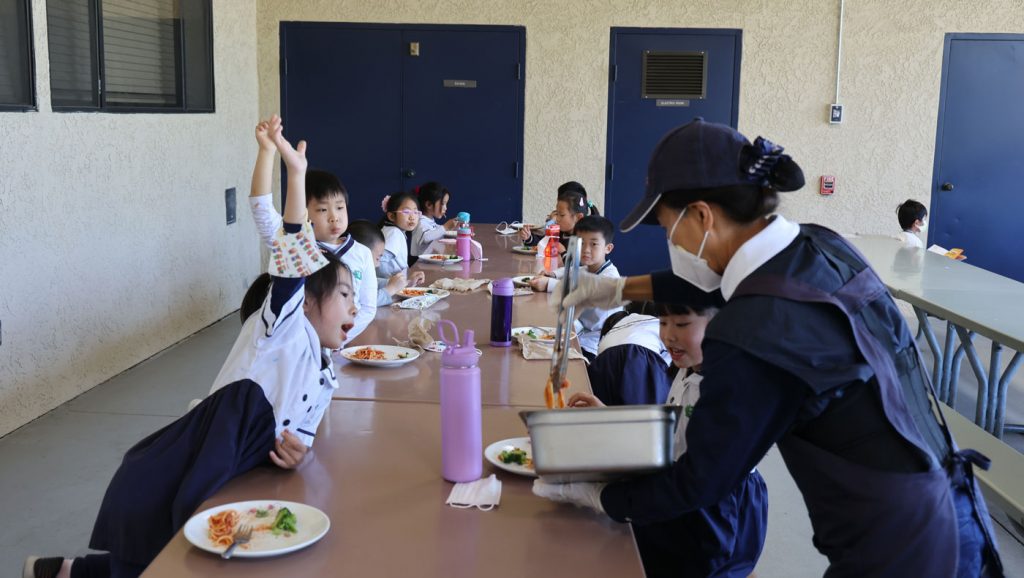
Tzu Chi is honored to have such a high volume of students interested in applying for admission to both Da Ai Preschool and Da Ai Elementary School. The applicant pool is so large, that there is currently a waitlist to attend. A primary reason many parents choose Tzu Chi schools for their children is the vegetarian diet; this lifestyle is so important to the parents that many travel great distances to allow their child to stick to the diet they follow at home.
Not everyone is a fan of the vegetarian menu, at least at first, but children who embark on this new adventure usually have a change of heart (and their parents appreciate it, too). When the kids sit together at lunch, they see their classmates eating foods that Mom and Dad might try to make at home, to no avail. This special bonding experience encourages the picky-eaters to try something unfamiliar, and many find their taste buds are quite surprised.
Chet Crane, Principal of the Elementary School of Walnut Education Park, is a strong supporter of the vegetarian lunch program.
Animals should not be our food, vegetarian food is good for health and protects the earth's environment. What makes it unique is that we teach students to benefit the environment and how to do that in their daily lives.
Principal Crane
Not only do we eat a nutritious vegetarian meal every day, but we also teach students about the relationship between diet and the body, and those nutrients are good for health," Chet continued. "As a school, one of our contributions to the planet is to encourage students to become vegetarians. We want to develop a global perspective in children, knowing that one person can impact the world in different ways. Now, our students are equipped with global perspectives as they start to understand the environment in which food can affect human existence.
Principal Crane
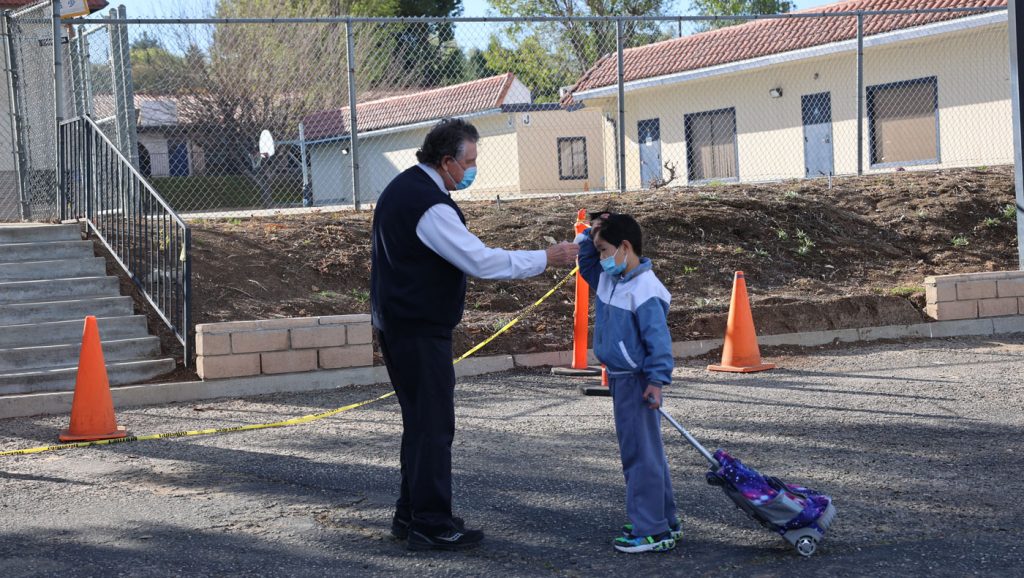
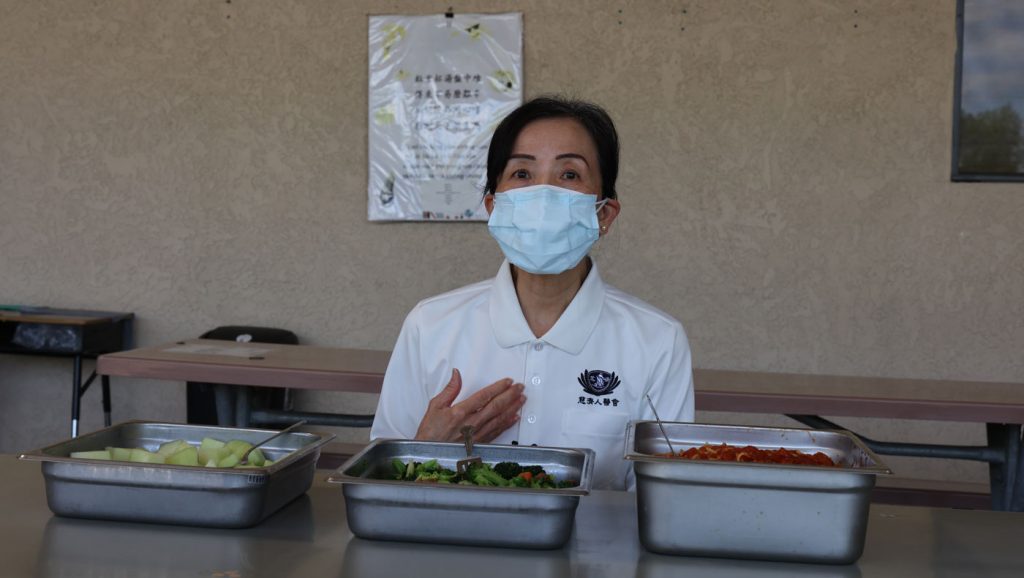
Students develop global perspectives from their daily diet and learn an incredible fact – what's on everyone's plate is impacting climate change, and we can protect the planet while we eat.
Principal Charles (Chet) Crane
CEO of the Education Foundation Debbie Lee said: “Promoting vegetarianism in schools can cultivate children’s compassion from an early age so that they can have a kind heart for people, things, all beings, as well as the Earth, know how to care, and know how to give.” She said, “After the pandemic, I feel that the character tsunami and the character crisis are what Tzu Chi schools should work hard to deal with. The promotion of vegetarianism is to nurture the compassion that everyone has. It is a very good education.”
Shuyan Chen, a nurse practitioner of Tzu Chi’s International Medical Association (TIMA), said, “Today’s staple food is pasta, it consists of tomatoes, tomato sauce, broccoli, veggie meat, and pasta. It contains the protein, vitamins, minerals, and other nutrient ingredients that children need as they develop. Cantaloupes are rich in vitamin C and fibers … these are all suitable for children’s growing needs.”
Recipes Made Kid-Approved
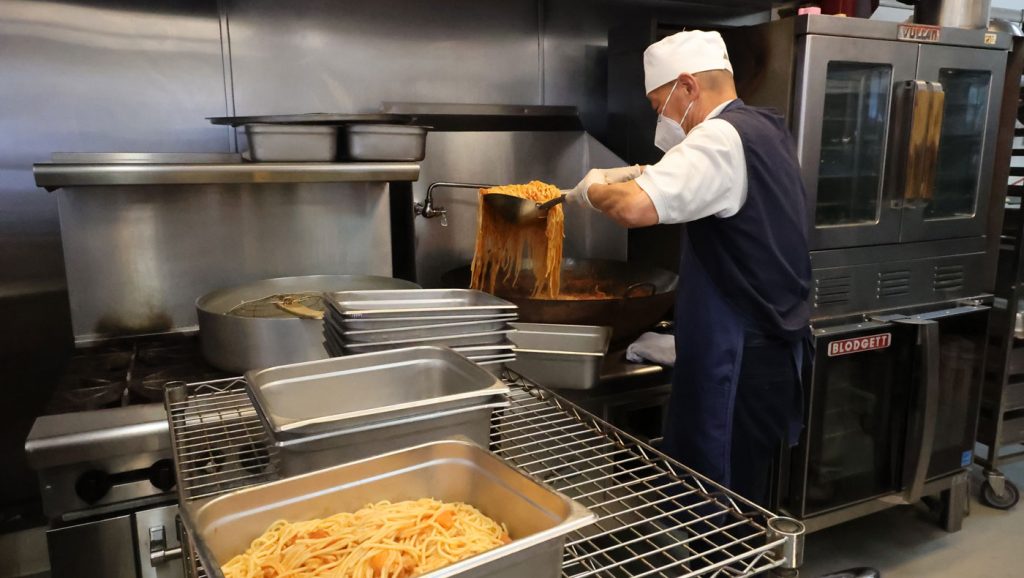
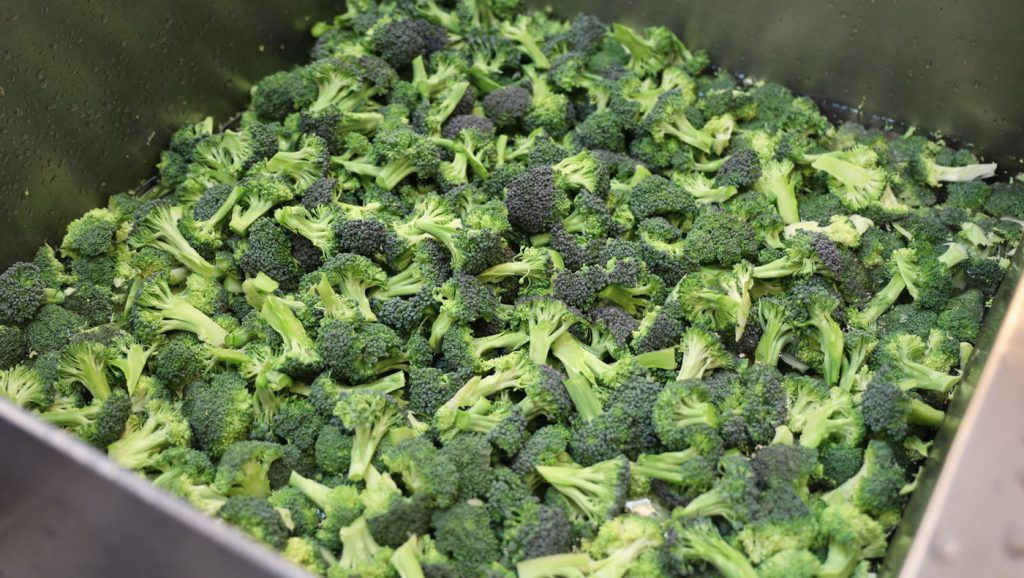
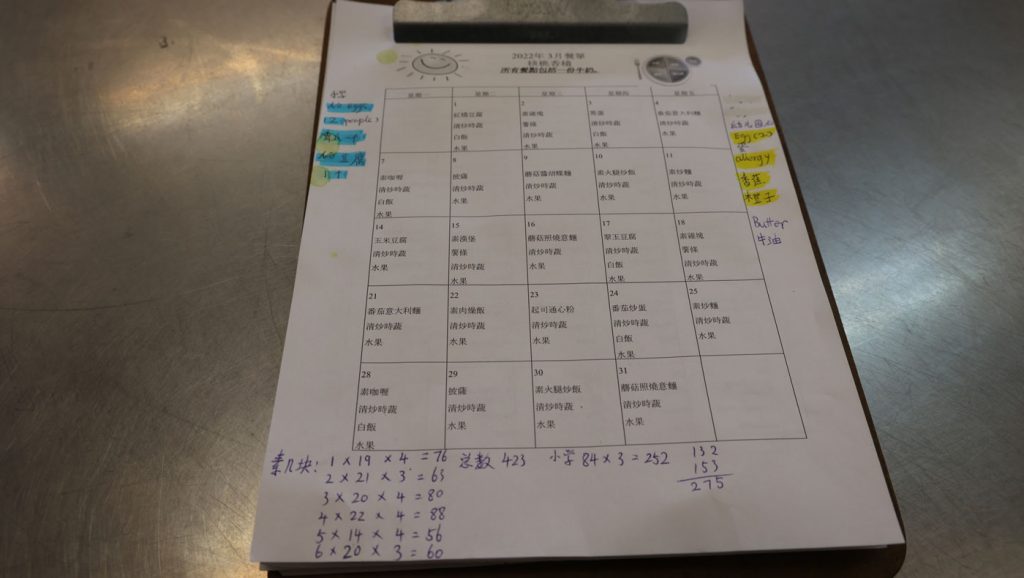
Chef Jiwei Sun admits his parents worried about his diet when he was young. When he joined the Tzu Chi family, he committed to a plant-based lifestyle, and then became the Chef of the Tzu Chi Walnut Education Park. Chef Jiwei and the school’s nutritionist meet daily to discuss their menu plans. The process is a team effort as they listen to volunteer suggestions and take note of the students’ favorite foods.
Chef Jiwei said he creates a variety of meals all based on recommendations from the school’s nutritionist. The menu incorporates both Western and Chinese fare to strike a balance in flavor profiles. Jiwei said the Chinese meals include scrambled eggs with tomatoes, steamed eggs, minced pork rice, ham fried rice, fried noodles, and fried rice with eggs. The Western-style food consists of pasta with tomato sauce, pasta with mushroom sauce, strichetti, teriyaki pasta, pizza, burgers, sandwiches, Mexican tortillas, and fries. Chef Jiwei and the nutritionist make sure the menu changes on a monthly basis, so children can try out new things and fall in love with a vegetarian diet on their own terms.
Jiwei said: “Most of the children don’t like vegetables. We are very careful about this. Now, they prefer broccoli, cauliflower, and cucumber. As for others, such as cabbage, and Chinese cabbage, we need to create varieties.”
Looking at Food Through a New Lens
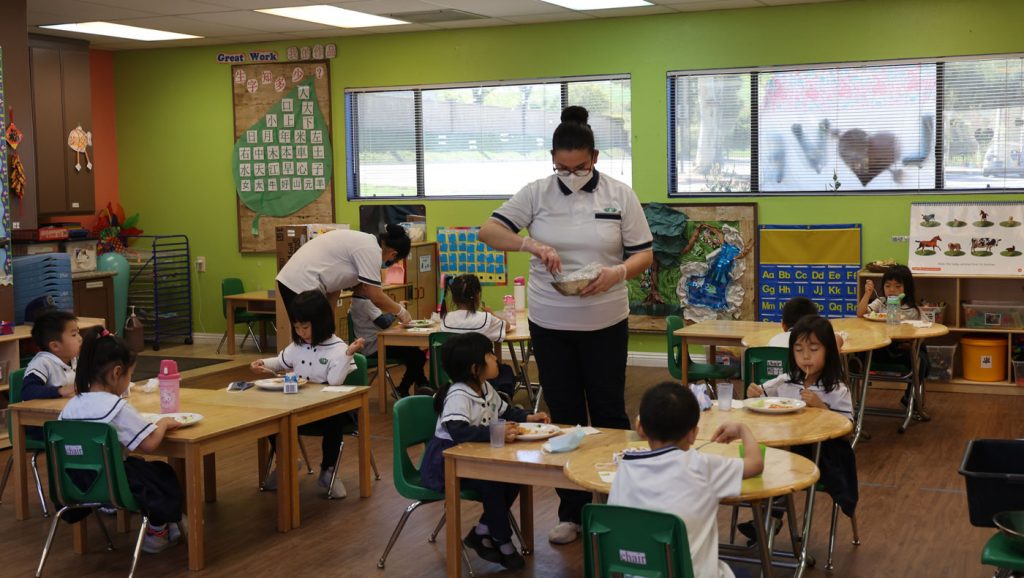
Preschool teacher Calette Sinae Garcia has been a vegetarian for 16 years. “It all started when I was in high school, my family and I were overweight, we suffered from obesity, diabetes, heart disease, and things like that,” she said. Calette knew she was at risk for developing the same health problems as her family, so she decided to make a change. She said the move towards a vegetarian lifestyle was gradual, but in time not only did she lose weight, but her health improved all-around.
Calette said she is very happy teaching at the Tzu Chi Preschool, and appreciates the opportunity to help children develop healthier relationships with food from an early age. She said, “I share the benefits of vegetarianism with the children. A vegetarian diet will not only make you stronger but also protect the environment. And I encourage them to share with their parents and family.”
Establish the right eating habits for children, and a small change can completely change a child's life and change the world.
Preschool teacher, Calette Sinae Garcia
“I often encourage kids to try the taste, even if they don’t want to,” says Calette. The teacher said that a lot of students went from rejecting vegetables completely to eating them happily every day. Creating a culture of curiosity with food and promoting the health benefits in a way kids understand goes a long way. The teacher said as the children observe each other trying new things, even the most apprehensive become inclined to join them. This model is a parent’s dream, as once-wary eaters start to eat their vegetables without a second thought.
The children’s interpretation of vegetarianism is simple and straightforward; their words are full of kindness and love for beings.
Eight-year-old Ziyu Li, said, “If you are a vegetarian, you won’t kill little animals and they can live well.”
The eight-year-old Ruishen Qiu said, “If someone hits you, it hurts, but if you got killed, it will hurt a lot. So, if we eat meat, it’s like we’re killing those animals, they will feel very unhappy and hurt a lot.”
The seeds of vegetarianism have been sown seamlessly in the young minds. The students understand the positive impacts of a plant-based lifestyle in terms they can understand, making them feel good about their eating choices and how it helps the world around them.
Protecting Our Water, Protecting Ourselves
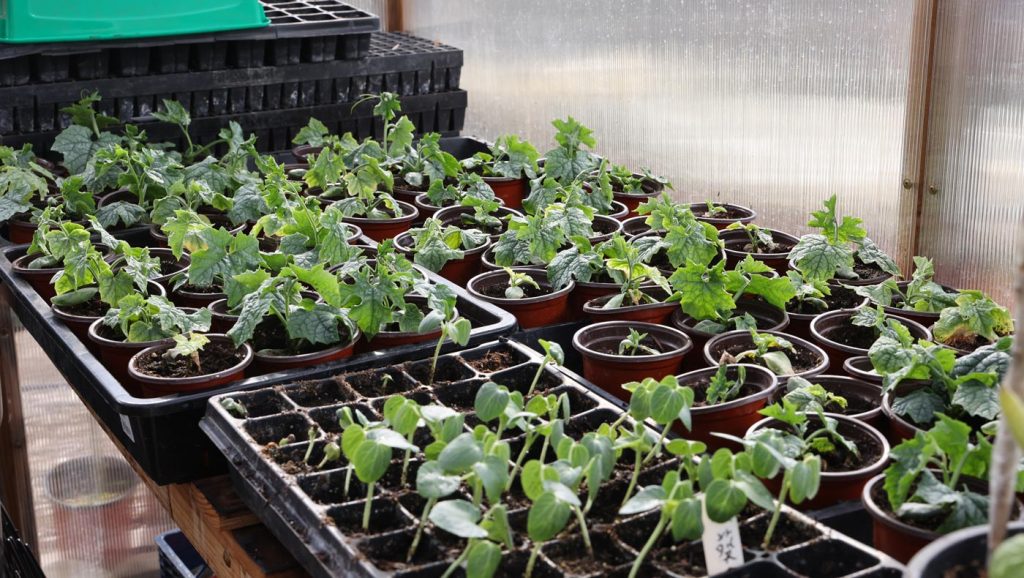

David Seto is an internalist, otherwise known as general internal medicine which deals with the prevention, diagnosis, and treatment of internal diseases. According to David, “More than 90% of internal medicine patients suffer from high blood pressure, diabetes, and high blood sugar. These diseases are all the result of diet, which always occurs concurrently, like a package. They don’t know why they get the diseases and it’s an aging thing. But it’s in fact your body protesting.”
The internalist said he is a vegetarian for his physical health, the health of the planet, and the health of his mind. He continued on noting how adhering to a vegetarian diet can reduce the risk of chronic disease, lower blood sugar, improve Diabetes, cholesterol, high blood pressure, reduce stress, and reduce the potential of cancer, especially prostate cancer.”
Yu Nan Liang has been a vegetarian since before she was even born; when Yu’s mother was three months pregnant, she began a vegetarian diet herself. Yu’s plant-based lifestyle has been a four-decade-long commitment that she plans to continue for the rest of her life.
She said, “Livestock farming is harmful to the planet, as the population increases, we will need two Earths to produce and supply the needs of the market.” Yu has been teaching her own children the concept of compassion, and takes them to a sanctuary farm every year to show them that animals are friends who need love and care.
We know children are impressionable young beings, and that they are just beginning to make sense of the world around them. However, we don’t always give them the credit they deserve when it comes to how much they actually understand. Beginning a healthy diet from an early age, and comprehending the why behind it, is an integral part in development.
If we communicate big ideas to our children, they have the capacity to make informed decisions on an empathetic, compassionate level. They’ll connect the dots, see the bigger picture, and realize they can make an impact to end suffering. What’s even more, children will see that taking care of themselves flows out into everything around them, fostering the mind, body, spirit connection.
As eight-year-old student, Taile Fang, so wisely said: “I feel that eating meat is like eating myself because animals also have life.”
Learn more about Tzu Chi’s Education Foundation and try out some vegetarian recipes with your family.





